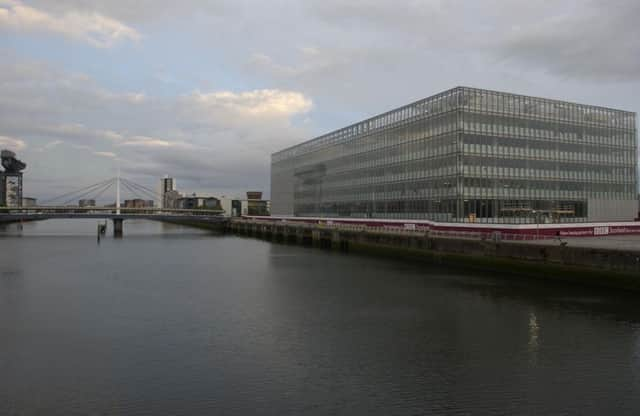Higher licensing fees post Scottish independence


Margaret Curran insisted that plans the Scottish Government has set out for broadcasting in the event of a Yes vote in the referendum are “uncosted, untested and completely unrealistic”.
The Scottish Government’s independence white paper proposes setting up a new public service broadcaster, the Scottish Broadcasting Service, if Scots vote to leave the UK.
Advertisement
Hide AdAdvertisement
Hide AdThe new service is compared with Ireland’s RTE in the white paper, though much of its schedule could be made up by imported foreign shows.
RTE primarily makes news, sport and some chat shows, and all of its drama is commissioned from independent firms. Its most watched programme is the beauty contest Rose Of Tralee.
The Irish are also able to view BBC shows, with EastEnders one of the most popular bought in by RTE.
The new body would continue to supply the BBC with the same level of programming as BBC Scotland currently does, and in return viewers in an independent Scotland would have “ongoing access to BBC services in Scotland”, according to the white paper.
Blair Jenkins, a former head of news and current affairs at BBC Scotland who is now chief executive of the Yes Scotland
campaign, insisted independence would be a “win-win for Scottish people and Scottish production companies”, with more jobs created in the sector.
But Ms Curran said a Scottish public service broadcaster could have a budget of just £257 million a year, while the BBC currently spends £160m producing its six most popular shows.
Advertisement
Hide AdAdvertisement
Hide AdThe Labour MP criticised the SNP plans and said: “Their numbers don’t add up and it means something simple for Scottish consumers: accept lower-quality TV programmes or pay a higher licence fee to buy back what you already have.”
She also claimed any move to “break up the BBC” would hurt production companies north of the Border.
Mr Jenkins, however, told BBC Radio Scotland that a Yes vote would mean the country would have “for the first time what every other normal European country has, which is a national television channel, showing programmes that are relevant to people here”.
He insisted: “There is no credible scenario in which we will not be watching BBC programmes and services we currently enjoy.
“The bonus is, like other small European countries, we will have our own domestic production base, which means more Scottish content and definitely more jobs.”
The Scottish Government’s proposals for broadcasting after independence were yesterday branded “make believe” by a former BBC director general.
Lord Birt warned independence would see major funding cuts for the corporation.
“The bold assertion in the Scottish Government’s white paper that a new Scottish public service broadcaster will work with the BBC in a programme-swapping joint venture is make believe,” he said. “One way or another, after independence Scottish viewers would have to pay to receive BBC services.”
Advertisement
Hide AdAdvertisement
Hide AdDr Roddy Flynn, a lecturer in broadcasting policy at Dublin City University, said it would be a “no brainer” for Scotland to set up its own broadcasting corporation.
“It certainly would be possible. It might not be something characterised by huge production values initially,” he said.
SEE ALSO: